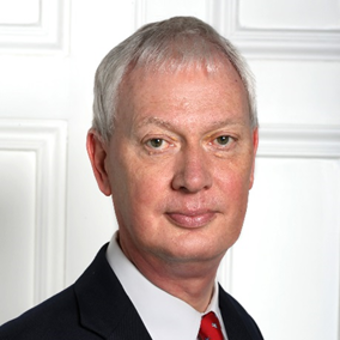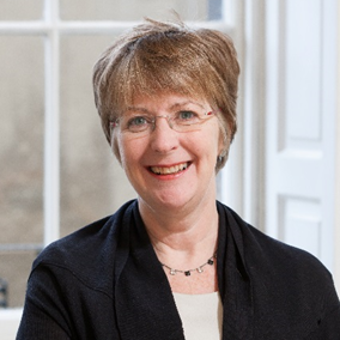BCL’s In-House Managing Director Mark Levine speaks to Sarita Patel about her experience of the SQE and her Qualifying Work Experience within the legal function of National Grid, one of the world’s largest electricity transmission and distribution businesses.
The Solicitors Qualifying Examination (SQE) is the new centralised way to qualify as a solicitor in England and Wales. It will eventually replace the Legal Practice Course (LPC) route to practice.
As well as the exams there is a need to complete Qualifying Work Experience, which can be completed by working alongside a SRA-regulated solicitor or Compliance Officer for Legal Practice.
Getting this experience via a law firm will always be the first thing that springs to mind. However, you can also do this whilst working in-house or in the public sector.
Mark Levine: Sarita, when did you decide you wanted to be a lawyer?
Sarita Patel: I read Sociology at university and didn’t think about law until my second or third year of studying. After taking the module “Social Theory of Law” (a fusion of Law and Sociology) during my second year, I didn’t look back!
I enjoyed learning about the law, specifically about artificial intelligence being recognised as agents under the law. Having to think about the ground-breaking implications of this, I decided I wanted to pursue becoming a commercial lawyer after university.
ML: Was training in-house, via SQE your first choice?
SP: Like most graduates trying to enter the legal profession, I expected to obtain a training contract at a commercial law firm and train in private practice. However, whilst applying for training contracts and vacation schemes, I found that I kept falling short at assessment centres. The nerves got the better of me.
After going through a few cycles of applications and assessments, I realised that private practice might not be the right fit for me. Instead, I prioritised gaining commercial experience to develop my commercial awareness and keep my options open.
ML: How did you learn about the SQE route?
SP: I learned about the SQE route primarily through word of mouth and discussions at university, where it became a common topic among peers. Additionally, I found valuable information on the SRA website and through posts from several ‘lawfluencers’ on LinkedIn and Instagram.
ML: How did you get the opportunity to work at National Grid?
SP: I got the opportunity to work at National Grid through Flex Legal, via its Flex Trainee scheme. I found out about the scheme via Strive, a social mobility charity for aspiring solicitors.
The Flex Trainee scheme allows candidates to train and qualify in-house via the SQE route (sponsored). The scheme connects trainee talent with companies in need of junior resource, with the capability of training such candidates to qualification.
Similar schemes are being implemented by other agencies, as well as companies developing their own trainee programmes to directly retain the talent in-house.
ML: Can you tell us about your training contract?
SP: During my training contract, I did not complete specific seats. Instead, I had the opportunity to focus on areas that I am passionate about, including artificial intelligence, data protection, cyber security, innovation, and ESG (in commercial contracts).
I also assisted in areas where junior resource was needed, such as construction and litigation. Working at National Grid, a large publicly listed utility, allowed me to engage in a wide range of rewarding commercial work such as developing the terms for the Deeside Centre of Innovation.
ML: How does it differ from training in private practice?
SP: Training in private practice differs significantly from in-house. During my six-month secondment to DLA Piper’s IP/Technology team in Birmingham, I worked with numerous clients and was involved in business development.
There were a few late nights(!) but the experience allowed me to home in on various skills, such as drafting and business development. Contrastingly, being in-house means you are immersed in the client, deal directly with the business stakeholders and often have to resolve issues on the spot.
You instruct external counsel and oversee the legal aspects of the project from a project management perspective.
ML: The exams are notoriously hard. How did you get through it?
SP: To get through the notoriously difficult exams, I was strict with my time management, organisation and approach, ensuring I utilised spaced repetition effectively.
For SQE 1, I focused on mastering the multiple-choice question technique whilst solidifying my understanding of the law. In SQE 2, I recognised the importance of skills but made sure to practise them in the context of the legal knowledge I had gained from SQE 1, keeping in mind that the exams are closed book.
ML: What tips do you have for aspiring lawyers who might want to follow in your footsteps?
SP: For aspiring lawyers, I recommend attending law-related events on campus and at law firms to gather as much information as possible, allowing you to make informed decisions about your future.
Additionally, seek out work experience opportunities at law firms and companies, even if it means shadowing professionals in the field. Finally, get involved by joining societies and committees at university, which will help you to develop your commercial awareness and ensure your voice is heard.
ML: Is there anything else you think the legal profession needs to consider to “open the doors” even more?
SP: Big companies as well as law firms need to give socially mobile, underrepresented candidates the space to be heard. More scholarships and mentoring opportunities need to be provided to address the saturated and ever-expanding legal market.
Although the SQE is considered to be ‘widening accessibility’ to the profession, the exams are still relatively expensive and, in most cases, require a prep course (additional £!) to succeed.
ML: What are your aspirations for the next few years?
SP: In addition to qualifying, my aspirations include gaining confidence in several areas, e.g. during public speaking and when applying the 5 W’s (@ Harry Borovick!) to tackle legal and commercial issues.
I aim to feel less like an imposter over the next few years by recognising the value of the advice I provide to the business and not downplaying it. International travel would be a huge bonus too.
Thank you so much for your time and insights Sarita. What really struck me was “Whilst applying for training contracts and vacation schemes, I found that I kept falling short at assessment centres. The nerves got the better of me.”
Thank goodness there was another great route to qualification available to you… and for the profession to get a great person in it like you!
Best of luck with what will be a wonderful legal career and thank you for sharing your experience with us.
Visit
Connect with Sarita Patel via LinkedIn












